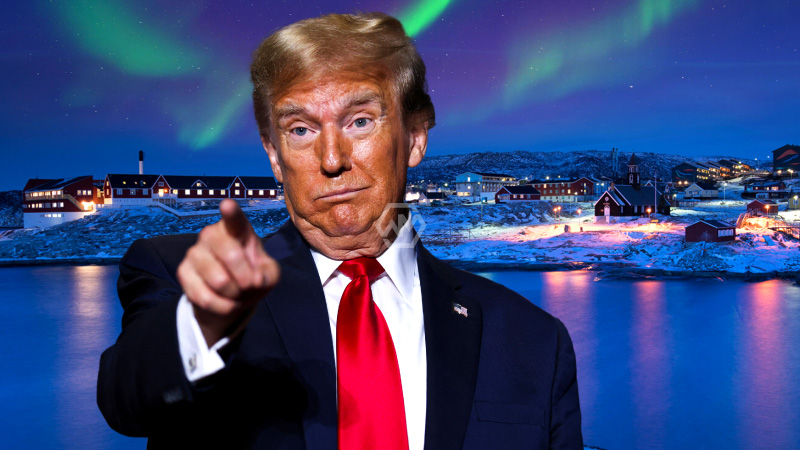- Trump revives expansionist ambitions, seeking to acquire Greenland and annex Canada.
- His executive power push raises concerns over the erosion of democratic safeguards.
- The geopolitical fallout threatens U.S. alliances and strengthens China’s influence.
Trump’s renewed interest in Greenland signals a broader shift towards an imperialist foreign policy. By framing it as a strategic necessity, he disregards Denmark’s sovereignty and Greenland’s Inuit population, reigniting debates over territorial expansion.
Domestically, his consolidation of executive power through legal battles and political maneuvering has sparked fears of democratic backsliding. The Republican-controlled Congress largely supports his moves, while judicial interventions struggle to keep up.
Manifest Destiny Reimagined: Trump’s Arctic Ambitions and Beyond
Trump’s Greenland bid underscores a modern-day Manifest Destiny, repurposed for geopolitical gain. Unlike past U.S. expansions through diplomacy or purchases, his approach relies on coercion and economic pressure. His rhetoric alienates allies and undermines America’s long-standing commitment to respecting territorial integrity.
Beyond Greenland, Trump’s territorial ambitions extend to Canada, where he has floated the idea of incorporating it as a U.S. state. While seemingly outlandish, his aggressive policies and history of disrupting diplomatic norms suggest his words may carry weight. The Panama Canal is another target, as Trump falsely claims China controls it, hinting at potential intervention.
These moves risk global backlash, particularly from European and NATO allies. Denmark, a key NATO member, sees Trump’s pressure tactics as an affront, while China and Russia seize the opportunity to expand their influence. By pursuing outdated expansionist policies, Trump weakens U.S. credibility on the world stage.
Meanwhile, China’s Arctic strategy, based on investment rather than coercion, highlights a stark contrast. By funding Greenland’s infrastructure and resource development, Beijing presents itself as a cooperative partner, even as it pursues its own strategic interests. In comparison, Trump’s imperialist tone isolates the U.S. from Arctic negotiations and weakens its global standing.
Trump’s revival of expansionist rhetoric and executive overreach could have long-term consequences. By alienating allies and undermining democratic principles, he risks reshaping America’s global role in ways that may not be easily reversed.
“The empires of the future are the empires of the mind.” — Winston Churchill



